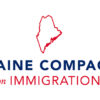Immigrants play a vital role in America’s high-skilled fields. By 2018, America will face a projected shortfall of more than 200,000 advanced-degree STEM (science, technology, engineering, and math) holders. More than half of all PhDs graduating from U.S. universities in many STEM fields are foreign-born, yet current immigration laws make it difficult or impossible for many foreign STEM students to stay in the United States after graduation and help fill the STEM-field workforce shortages.
The problem is particularly acute in the healthcare industry, where the United States faces a shortage of physicians and surgeons, professions that immigrants are nearly twice as likely as native-born citizens to fill. The evidence is clear that high-skilled immigrants create American jobs. Every foreign student who graduates from a U.S. university with an advanced degree and stays and works in a STEM-related field creates an additional 2.62 American jobs. But despite this positive impact, the current immigration system is woefully unprepared to attract and retain the top global talent. Year after year, the cap for temporary high-skilled visas is met within days, leaving tens of thousands of job creators waiting in line to come to America. And while the country invests in educating the best and brightest from around the world at America’s top universities, many of them are sent home after graduation, unable to stay and generate new opportunities in the United States.
Learn more about the Partnership’s proposals to fix America’s high-skilled immigration policies.


